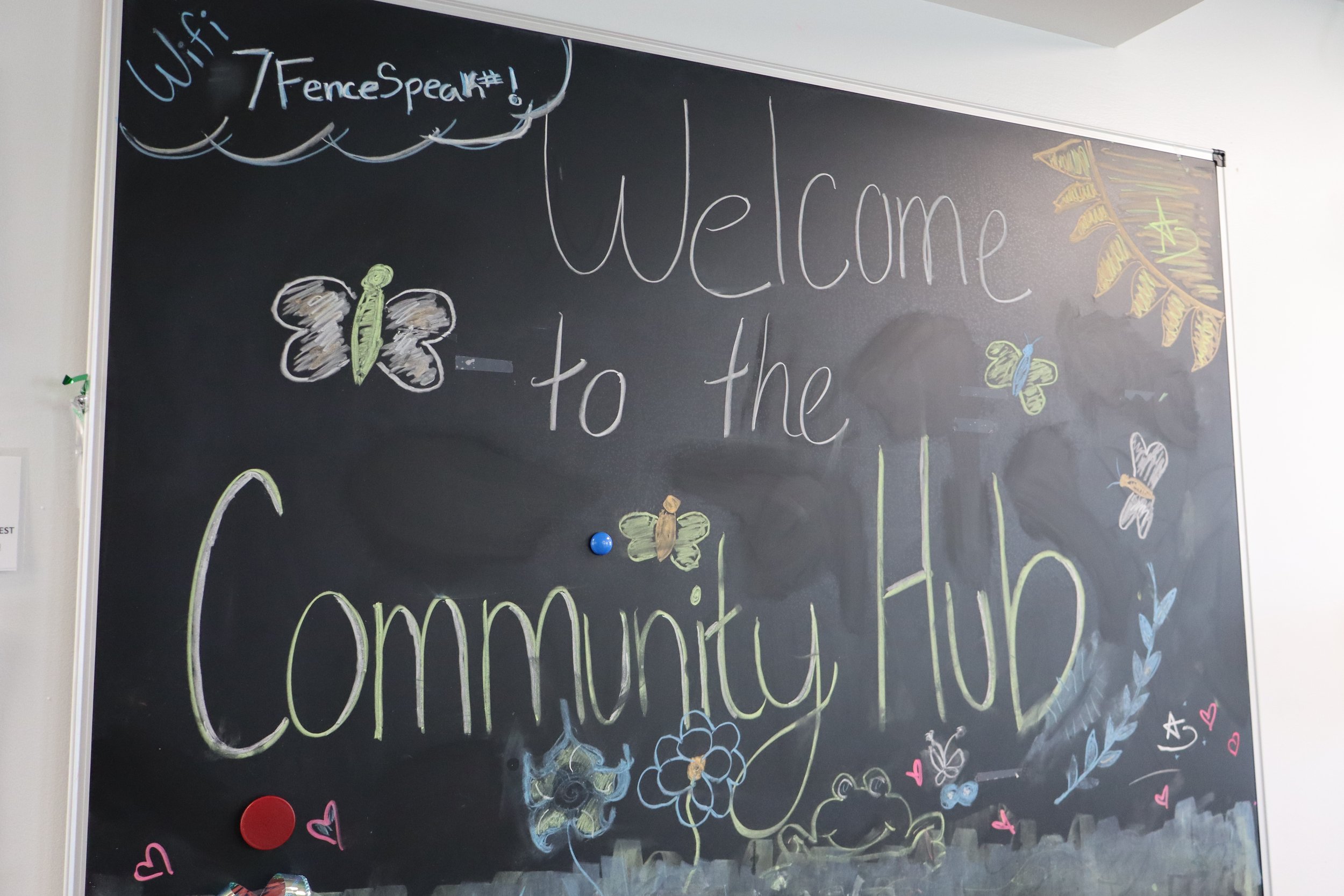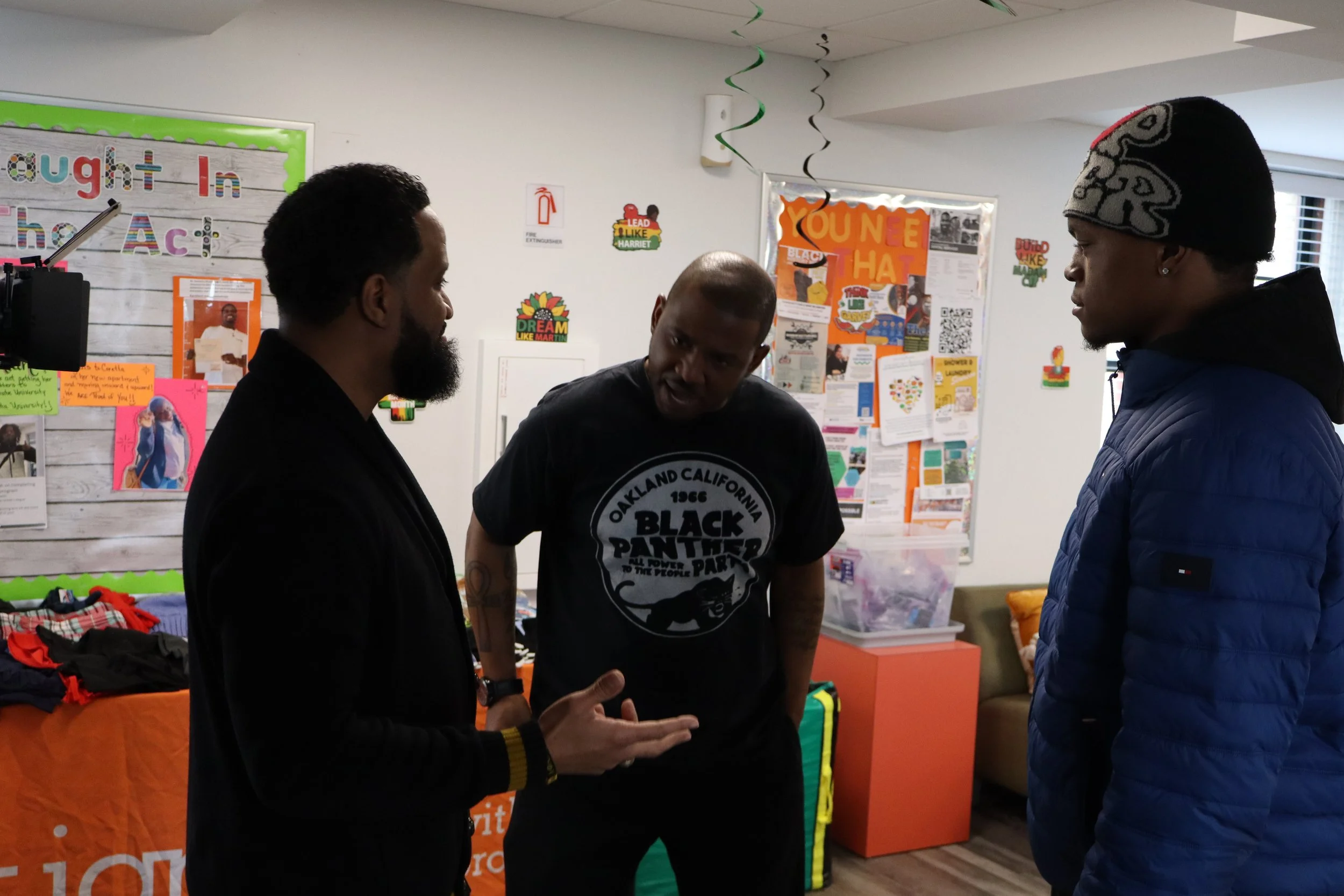Harvesting Hope: Celebrating Black History in the Heart of Bronzeville with Everyone
“We are each other’s harvest; we are each other’s business; we are each other’s magnitude and bond.”
Everyone involved with Ignite was invited to learn more about Black History. Here are some highlights: Pulitzer Prize winning poet Gwendolyn Brooks arrived in 1910’s Chicago as an infant, her family fleeing Kansas for the promise of opportunity in the North. In 1917, they settled in Bronzeville, Chicago’s Black cultural hub at the time.
The Brooks’ home was modest, surrounded by families in kitchenette buildings and tiny, tree-lined bungalows. Their neighbors had similar journeys to Chicago from the Deep South and as far away as the Carolinas. While urban Bronzeville was a stark contrast to the rural South, segregation continued to follow Black families to Chicago during the Great Migration, resulting in overcrowding and persistent racism.
Still, Bronzeville blossomed into the 1930s. The “Black Wallstreet of Chicago” afforded new opportunities for Black business owners and artists alike. Like New York’s Harlem Renaissance, jazz and poetry filled the brick and stone buildings of early Bronzeville. Louis Armstrong, Duke Ellington, even Nat King Cole dazzled audiences from 31st Street to 51st Street.
Brooks published “A Street in Bronzeville,” a collection of poetry capturing the community’s day-to-day life, in 1945. 80 years later, income disparities, barriers to adequate housing, and even the construction of the Dan Ryan Expressway have threatened Bronzeville's storied legacy, forcing the community to forge a new, modern identity.
Located on East 47th Street, Ignite’s Community Hub & Drop-In Resource Center has been a part of Bronzeville’s history since 2013, serving as a vital resource in the heart of the community. Like Bronzeville, Ignite’s community is predominantly African American, with over 80% of its participants identifying as such.
Given this strong connection, Ignite continued its yearly tradition of acknowledging, embracing, and celebrating Black History Month with an event filled with laughter, food, prizes. Hosted at the Community Hub, our clients were encouraged to participate in trivia, enjoyed delicious food straight from the community, and sat through many meaningful talks by prominent Chicago community members.
Chineze Mogbo, Director of Outreach and Prevention speaking about the importance of Black History Month with our Ignite community.
We asked Ignite Director of Outreach and Prevention Chineze Mogbo why this annual February celebration is important: “At Ignite, our clients have experienced some traumatic situations, just like our Black Ancestors have,” she said. “Celebrating what they have accomplished and are accomplishing and how they have preserved through their obstacles gives the youth hope to get through their own challenges.”
Check out this video featuring Ignite staff as they dive further into the history of Bronzeville.
As Bronzeville continues to find its voice, so do our clients. Ignite’s young people carry the legacy of every corner of Chicago they come from, many of them from Bronzeville. And those same streets that Gwendolyn Brooks celebrated in her poetry are alive, today, with community, resilience, and, most of all, the hope of a future full of promise. It is Ignite’s mission to instill that same promise in every young person who walks through our doors.
As Gwendolyn reminded us, “we are each other’s magnitude and bond.”
By: Olivia Robinson, Ignite



